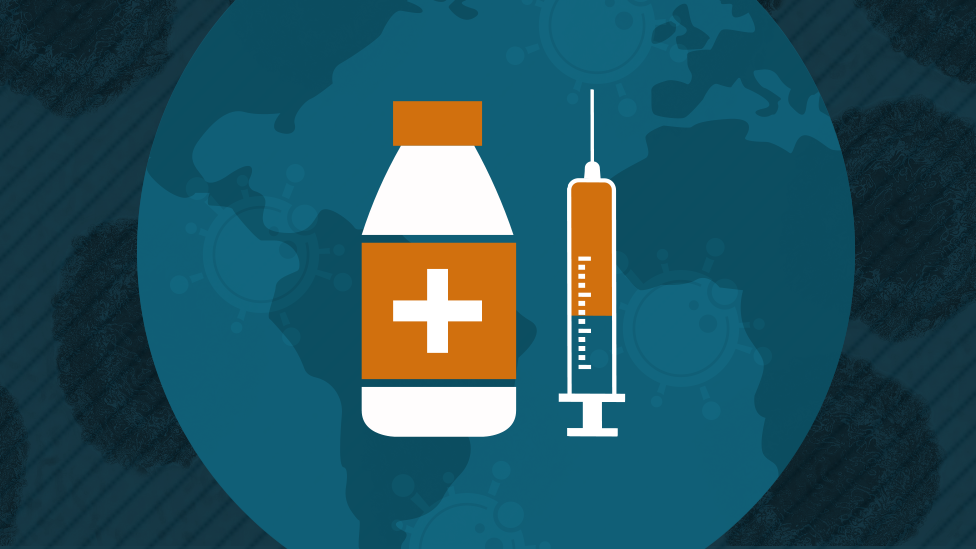Covid: Had the jab and feeling bad? Why does it happen?
- Published
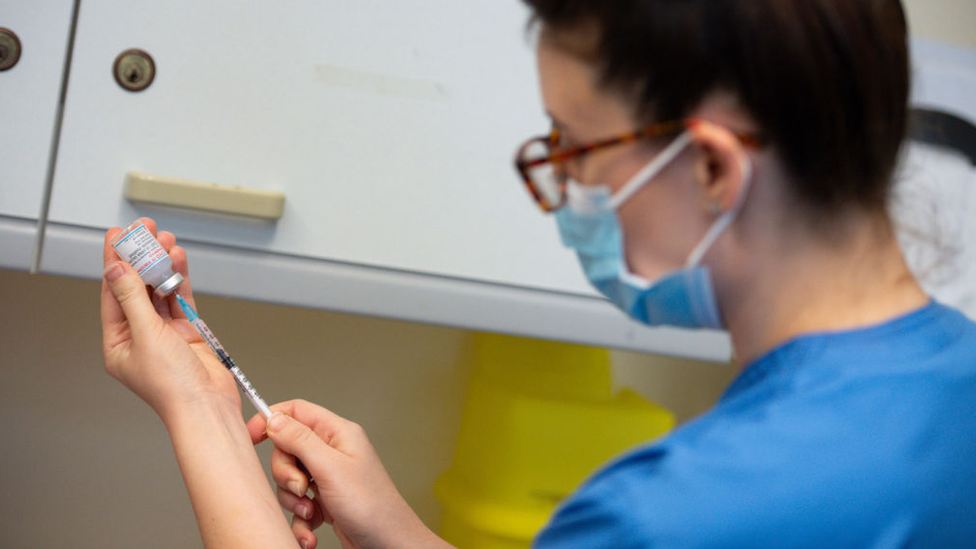
Why do some people feel unwell - while most don't - after a Covid jab? And does it matter?
For most it's just a sore arm - for others it can wipe you out - but why does the Covid vaccine act this way?
BBC Wales journalist George Herd has a special interest as he lives with an immune system health condition.
More than 35 million people in the UK have now had at least their first Covid jab - including more than 62% of the population in Wales.
A study of 600,000 people across the UK found the most common side effect of the jab was pain where the needle went in.
But one in four experienced other symptoms - fever, headaches and nausea - that last about a day.
The question I wanted to ask was: Were those who had less of a reaction still protected?
And what about those - like me - who have a condition that affects how their immune system works?
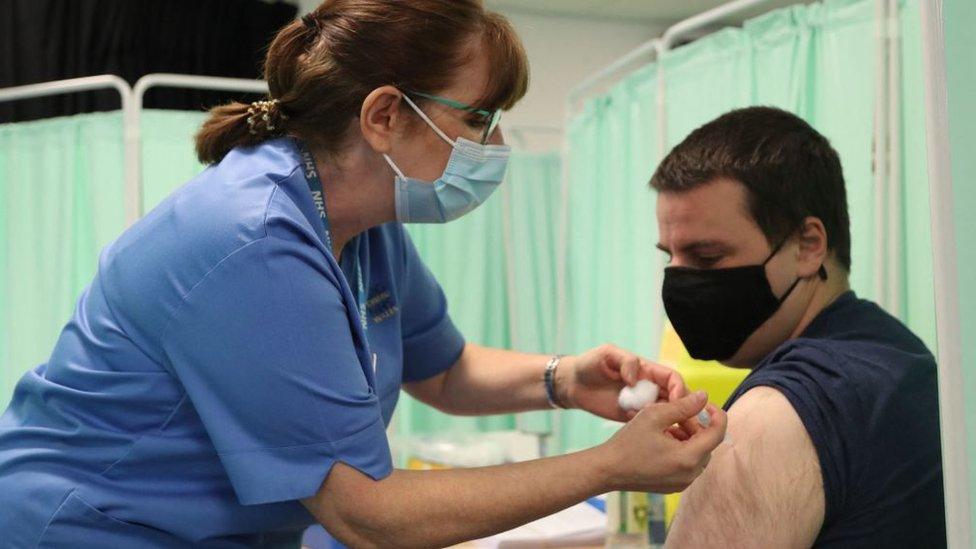
More than 1.9 million people in Wales have now had a Covid jab - more than 60% of the population
I lost my spleen following an accident as a young teen.
A fist-sized organ that hides just under the left ribs, it has an important role to play in the immune system. It's part of our arsenal in fighting infection.
Of course, I'm living proof that you can survive without one. I have an active and full life, often to be found on the hills above my home in north Wales - where I have even taken part in the gruelling Snowdonia marathon.
However, I am at risk of potentially overwhelming infections, and have repeat vaccinations against certain illnesses, in particular pneumonia.
I also tend to get prescribed antibiotics on a much more regular basis than most.
But I've been lucky - and only once ended up on a hospital drip due to an infection.
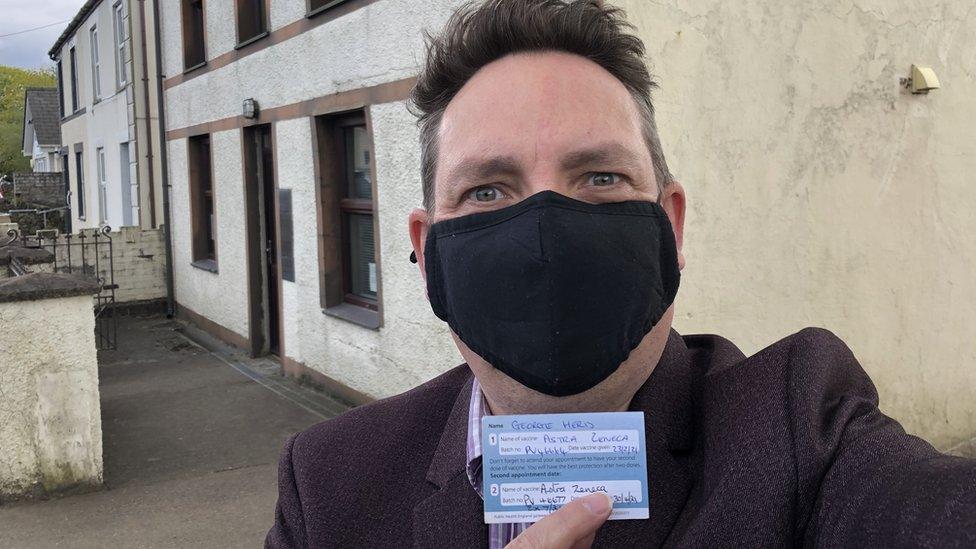
Fully vaccinated: BBC Wales' George Herd has now had his second Oxford-AstraZeneca dose
I had my first Covid jab back in February - now I've had my second and am fully vaccinated.
I fell squarely in the no-reaction camp to the vaccinations. Sore arm, yes - but little else to note.
Was that, however, because my immune systems are damaged?
What about those who have to take drugs to suppress their immune system, such as organ transplant patients, or those undergoing treatment for cancer?
Is the Covid jab working for them?
An emphatic "yes" says expert immunologist Veenu Manoharan.
"I get emails from people who have compromised immune systems, maybe because they are taking drugs for chronic diseases, asking me the same thing," said the Cardiff Metropolitan University lecturer.
"But the studies state that even though the first dose maybe does not give them enough antibodies, the second dose will. It will give them immunity.
"It is not the case that those people on immunosuppressants are without hope. The second dose really does help improve their level of antibodies."
Good news then for those who have been facing that worry - including myself.
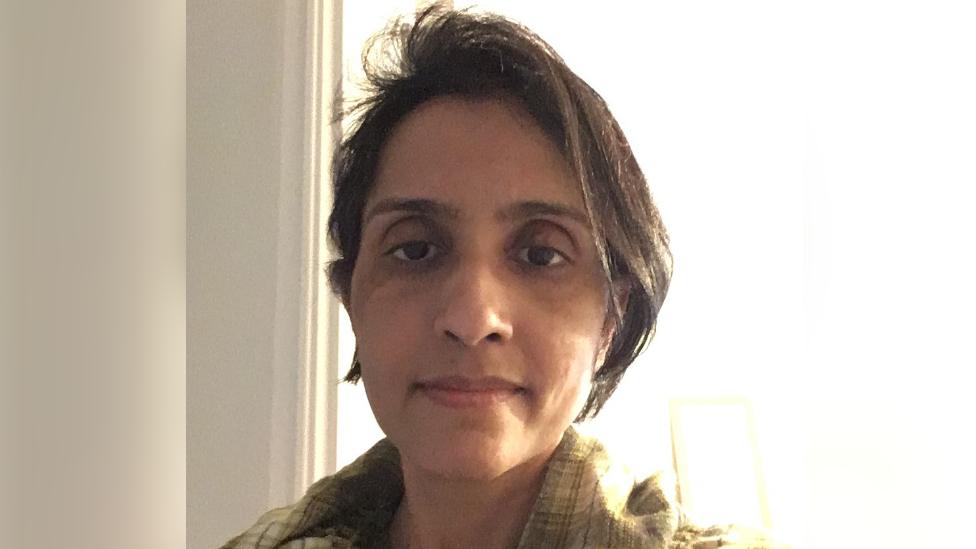
Immunologist Veenu Manoharan says the vaccines work for those with weakened immune health
But what about those who showed no or little reaction to the jab?
Does this mean it hasn't worked as well as those laid up in bed for a day or two afterwards?
Not at all, insists Dr Manoharan.
And that's because of what vaccines are and how they work.
All the Covid vaccines being used in the UK - Oxford-AstraZeneca, Pfizer-BioNTech and Moderna - work to stimulate a response from the immune system, triggering it to make antibodies.
These antibodies then identify specific germs or viruses, and act as a signal for the rest of the immune system to take out the unwanted invaders.


"Sometimes our immune response is exaggerated, especially when you are having a vaccine," explained Dr Manoharan.
The "exaggerated" responses are those fevers and chills or fatigue, as your body is tricked into believing it is under attack and needs to respond.
But whether you experience an exaggerated response or not will depend on many factors - including your own genetic make-up and medical history.
Your sex also has a role to play.
Women are more likely to trigger a stronger immune response, because the hormone oestrogen is known to enhance the immune system.
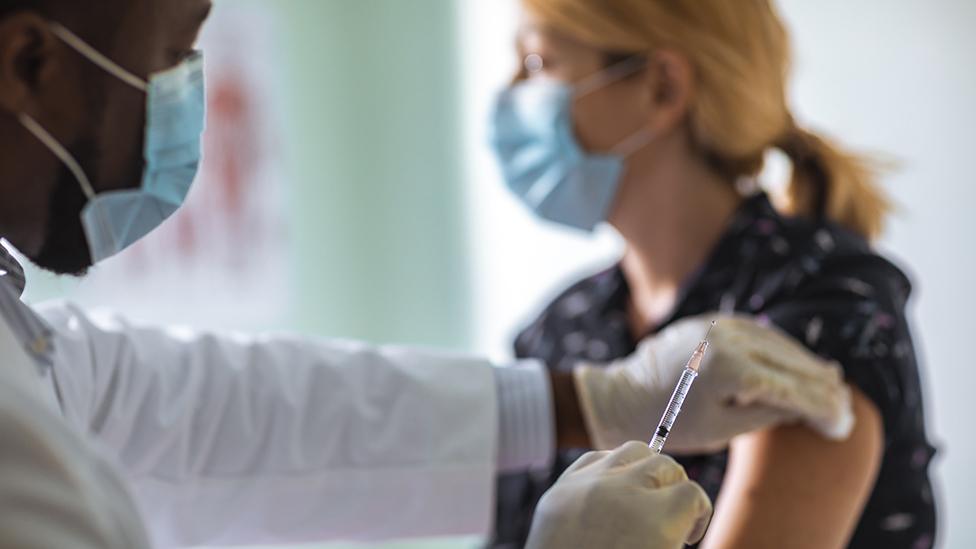
How we respond physically to the Covid vaccine is not a measure of how effective it is, say doctors
Similarly, higher levels of the hormone testosterone in men have the opposite effect on the immune system - it suppresses the inflammatory response of the reaction.
Age also plays its part.
As you get older, your immune system becomes less active. So those who got the jabs first - the oldest in our society - would be expected to have less of a reaction and that's exactly what happened.
Similarly, the younger you are, the more likely your immune system will react more energetically to the vaccine.
One review of vaccination research, external suggested other factors can play a role in the reaction.
Behaviour such as smoking, alcohol consumption, body weight and exercise levels - even the time of day you get a jab - could influence how the vaccine works.
But Dr Manoharan's view is that none of this matters.
"If you don't have an exaggerated reaction, it does not mean your immune system isn't working.
"If you think about it, every day we are exposed to a variety of microbes and pollutants. Our immune systems are constantly detecting those.
"But we don't feel ill. Our immune system is protecting us every single minute of the day - we just don't notice it."
So whether you felt unwell after your Covid jab - or nothing at all - the science is telling us we should get a good level of protection.
- Published4 March 2022
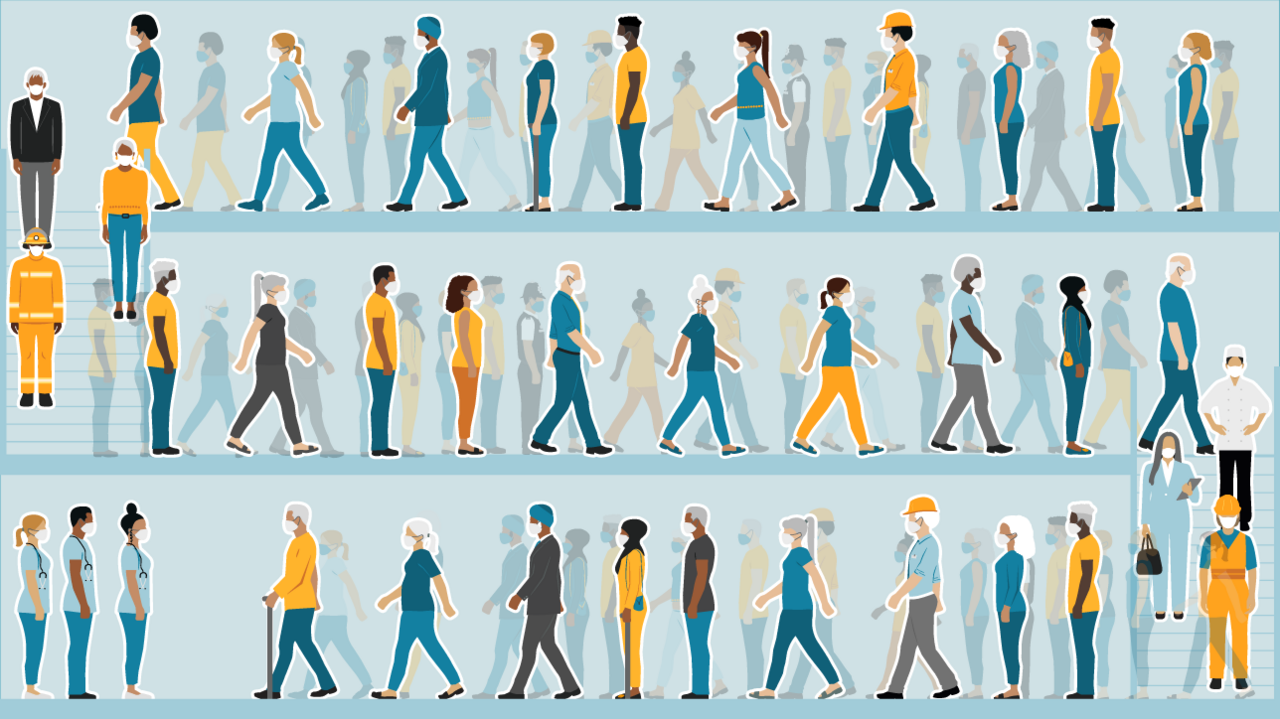
- Published29 April 2021
- Published2 April

- Published29 April 2021
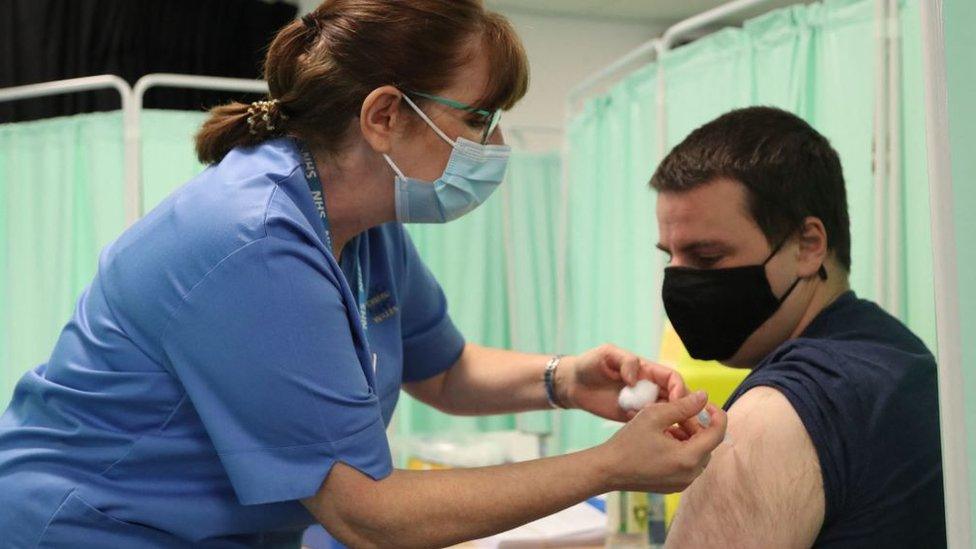
- Published28 April 2021
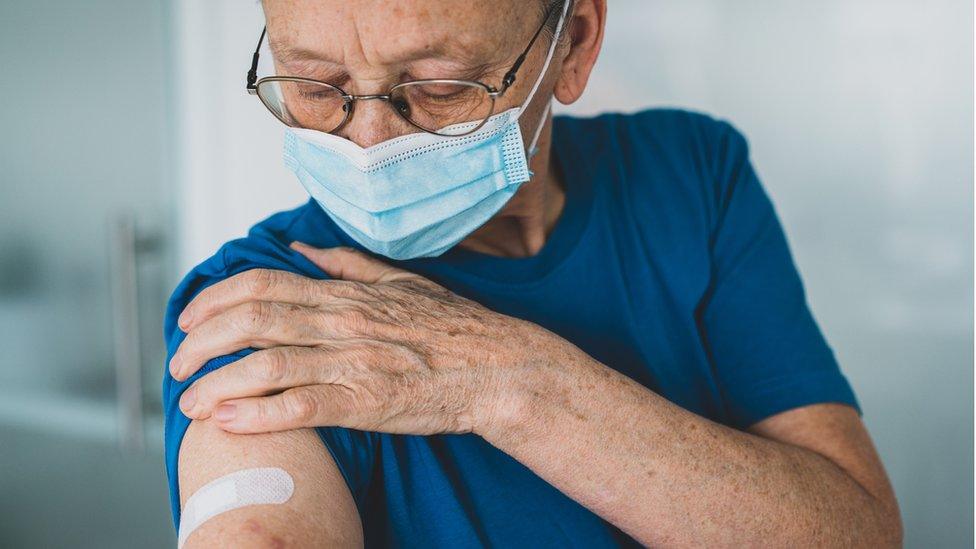
- Published7 May 2021
- Published7 May 2021
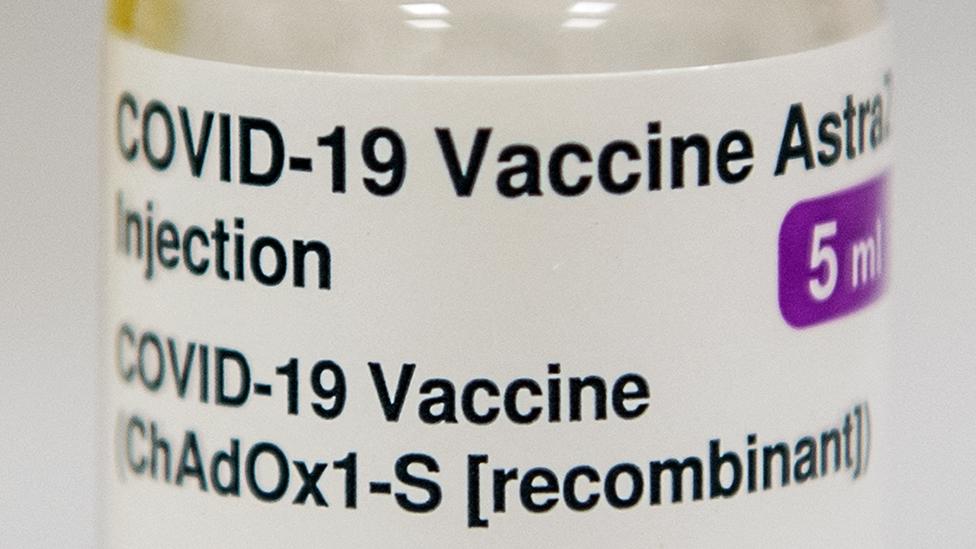
- Published4 July 2022
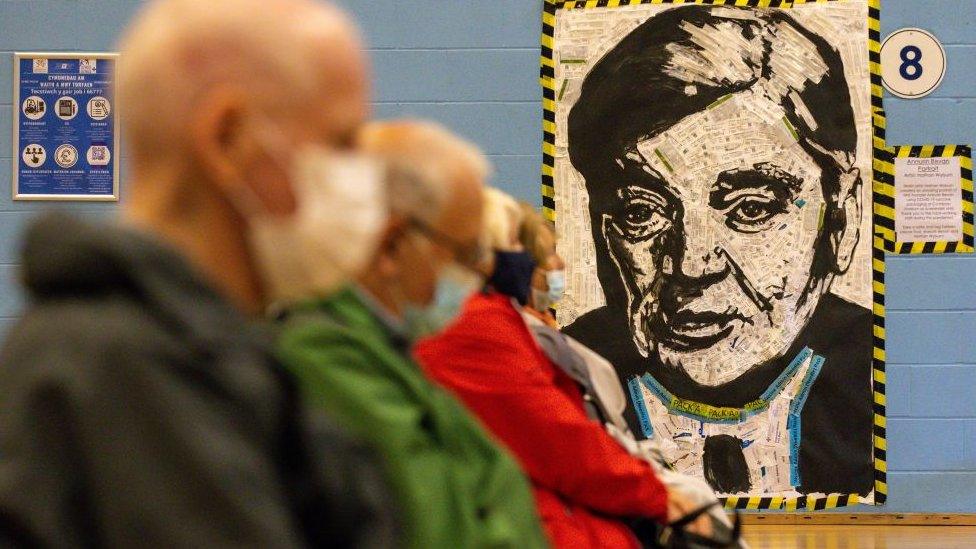
- Published1 June 2022
